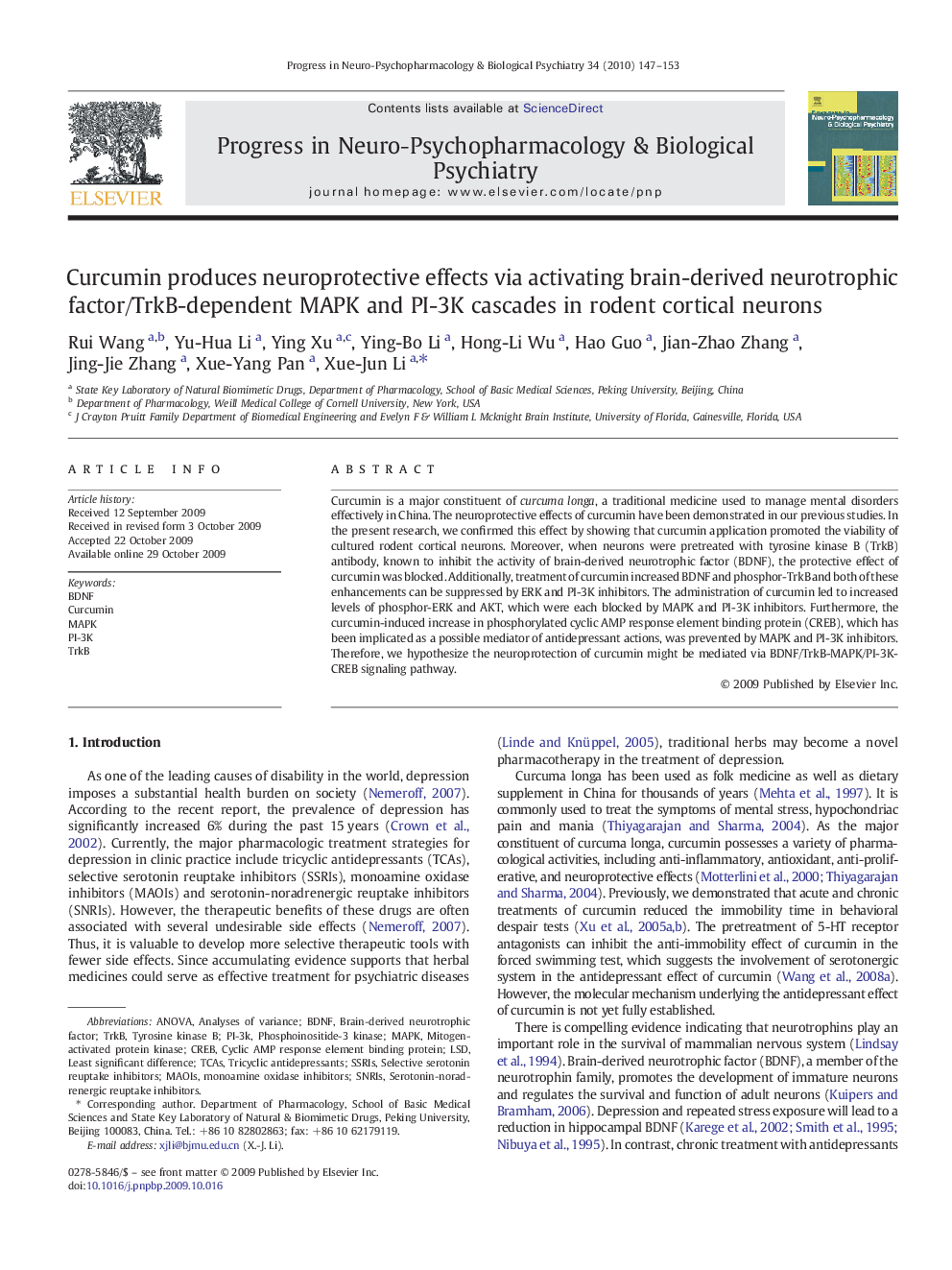| Article ID | Journal | Published Year | Pages | File Type |
|---|---|---|---|---|
| 2565183 | Progress in Neuro-Psychopharmacology and Biological Psychiatry | 2010 | 7 Pages |
Curcumin is a major constituent of curcuma longa, a traditional medicine used to manage mental disorders effectively in China. The neuroprotective effects of curcumin have been demonstrated in our previous studies. In the present research, we confirmed this effect by showing that curcumin application promoted the viability of cultured rodent cortical neurons. Moreover, when neurons were pretreated with tyrosine kinase B (TrkB) antibody, known to inhibit the activity of brain-derived neurotrophic factor (BDNF), the protective effect of curcumin was blocked. Additionally, treatment of curcumin increased BDNF and phosphor-TrkB and both of these enhancements can be suppressed by ERK and PI-3K inhibitors. The administration of curcumin led to increased levels of phosphor-ERK and AKT, which were each blocked by MAPK and PI-3K inhibitors. Furthermore, the curcumin-induced increase in phosphorylated cyclic AMP response element binding protein (CREB), which has been implicated as a possible mediator of antidepressant actions, was prevented by MAPK and PI-3K inhibitors. Therefore, we hypothesize the neuroprotection of curcumin might be mediated via BDNF/TrkB-MAPK/PI-3K-CREB signaling pathway.
